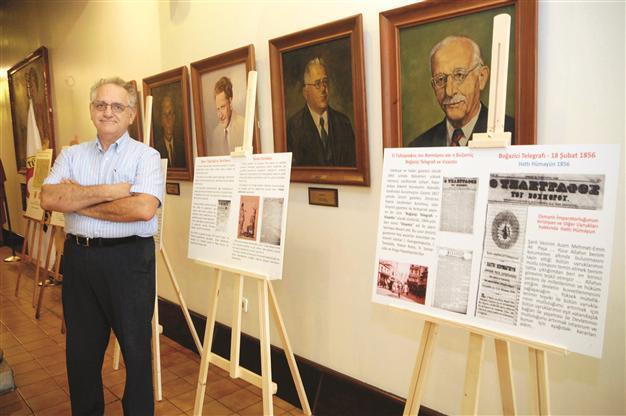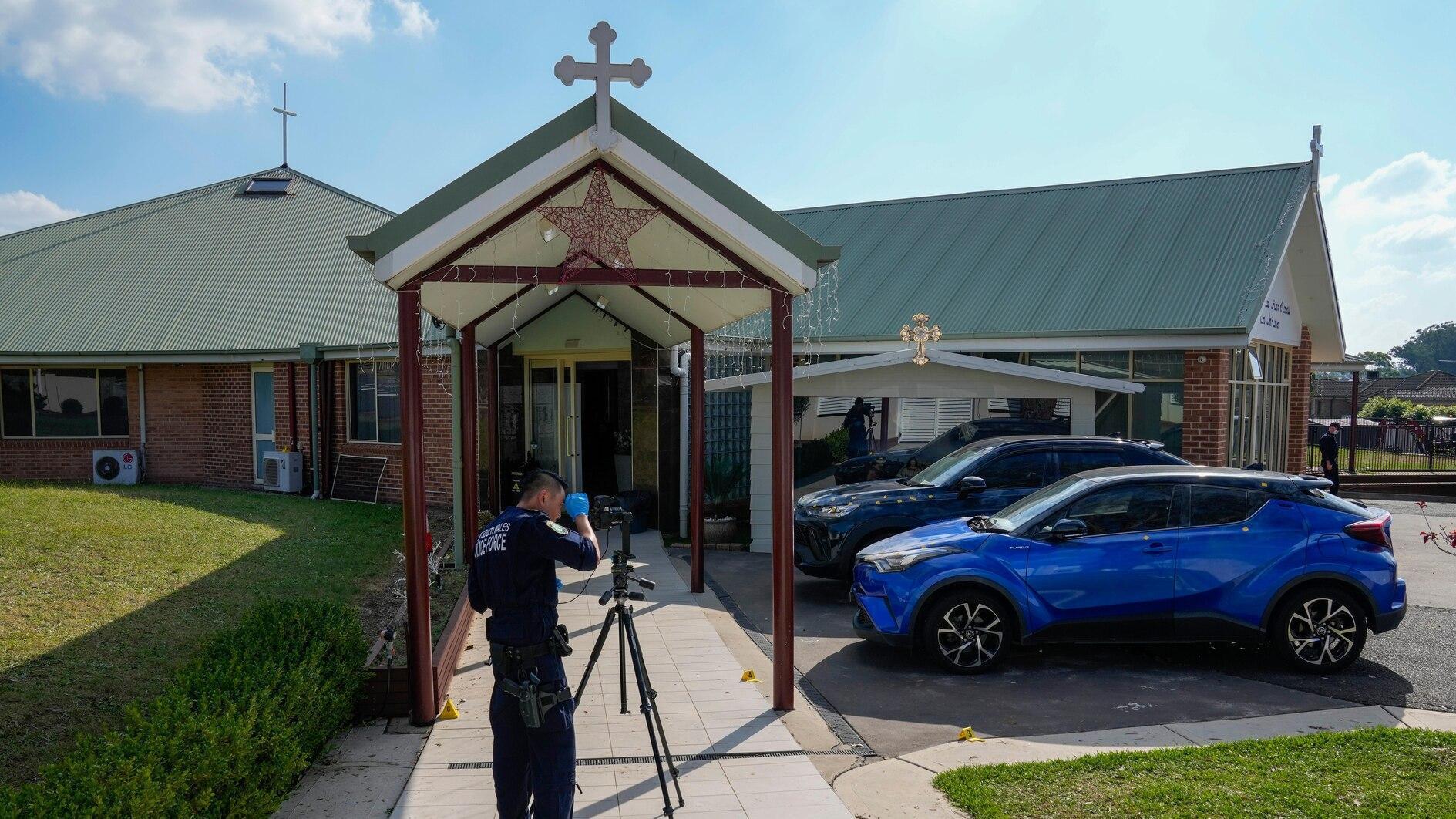Exhibition reflects press history
ISTANBUL - Hürriyet Daily News

According to Nikos Uzunoğlu, Federation of Istanbul Greeks living abroad proposed the idea of hosting the exhibition to other institutions, but received only negative answers. DAILY NEWS photos, Hasan ALTINIŞIK
Representing the history of Istanbul’s Greek press, which was active during the Ottoman Empire, the exhibition “Greek Publishers and Journalists living in abroad in Istanbul’s Press History from 1830 to 1914” will run until Oct. 11 at the Turkish Journalists Association in Çemberlitaş.The exhibition contains documents collected from the archives of the Greek Parliament and Hakkı Tarık Us Library Collection, which belongs to the Istanbul Metropolitan Municipality. The exhibition showcases the first journals published in Istanbul, columns about censorship, original newspapers written in Greek and Ottoman Turkish and video projections. The exhibition has been organized by the International Federation of Istanbul Greeks living abroad to spread awareness of Greek history in Turkey.
Aim of the exhibition
“With this exhibition we aim to represent the wealth of Istanbul’s Greek press and its contributions to the Turkish media,” the federation’s head Nikos Uzunoğlu said.
The exhibition only covered the press of Istanbul’s Greeks and did not include documents of Anatolian Greek press, Uzunoğlu said. “The exhibition covers the period between 1830 and 1914. We wanted to focus on the period which we call “Hope Period,” during which the Ottoman state had the possibility of passing into a multicultural and democratic system,” Uzunoğlu said.
According to Uzunoğlu, the federation proposed the idea of hosting the exhibition to other institutions, but received only negative answers. “I am pleased that the Turkish Journalists Association hosts this exhibition,” Uzunoğlu said.
He noted that the history of the Greek press, which gained acceleration in the 1830s, rapidly progressed at the time of the Ottoman Empire when newspapers in international standards began to be published. As an example, he gave the newspaper “Neo-Logos” (New Language). “’Neo-Logos’ gave place to analysis from the world press and also made political interpretations. The content of its articles was rich,” he said.
Uzunoğlu said the Ottoman Nation System’s effects on press could be clearly seen in the archives. “Until the First Constitutionalist Period there was a liberal atmosphere. After that, the newspapers were exposed to the pressure of censorship mechanism. It is possible to see all these processes at the exhibition,” he said.
“Istanbul’s press was much more advanced than Greece’s”
Two Greek newspapers named “Apoyevmatini” and “IHO” are currently struggling to exist in Istanbul, Uzunoğlu said.
“Since the 1950s minorities have been regarded as potential enemies. Within this period, journalism became more difficult than it was in the Ottoman period.
Greeks began to immigrate. In past, there were about 5,000 journals printed in Istanbul. This exhibition will show the rich political and cultural past of Greek society during the 19th and 20th centuries.
It was not even possible to compare the Istanbul’s Greeks press with the press in Greece during that same time.
Istanbul was much more advanced than Greece in this regard. Not only were newspapers and journals being published, but also periodicals for children and women were being published. This shows that the Greeks are a bourgeois urban society,” Uzunoğlu said.
















